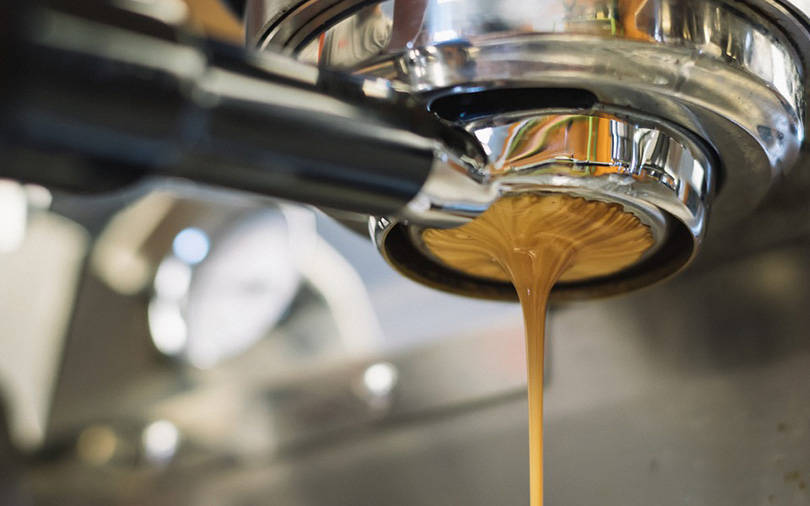
How offline F&B businesses are adopting analytics and IoT to drive growth


For Soulfull, a packaged food brand, technology is the backbone on which it runs its operations. This has allowed the company over the last two years to reduce the time taken for its products to reach the consumer from the farm by half.
Run by Kottaram Agro Foods Pvt. Ltd, the Bengaluru-based startup's founder and chief executive Prashant Parameswaran said that the fresher a food product, the better it is for everyone.
Backed by venture capital funds, the firm’s packaged products have a shelf life of nine months, which allows it to bring down inventory costs, storage or refrigeration costs, distribution costs, and even makes the food tastier, explained Parameswaran.

“When you compete against larger multinationals and entrenched food businesses like Britannia or ITC, the upstarts have to reduce wastage and improve all round efficiency from day one across the organisation. You have to be smart and it is way more important to us than for the larger players,” he added.
The company adjusts its supply chain based on its inventory levels, which also includes geotagging stores. Soulfull has also managed to decrease its inventory at its factories to a minimal level.
New tech for new-age firms

Soulfull joins a growing number of consumer-focused companies that are using technology to streamline their businesses. Among the new-age firms adopting emerging technology is dosa batter maker iD Fresh Foods, which along with SoulFull, uses Bizom, a software-as-a-service product for retail analytics, and tea retail chain Chai Point, which has developed its own in-house solutions. For these companies, such solutions are cheaper to implement than SAP or Oracle.
PC Musthafa, founder of iD Fresh Foods, and his team are all information technology engineers, and this drove the firm’s thesis of using technology to build its business and solve problems and challenges.
The company’s demand prediction algorithm has improved so much that it can determine when stores have reached the limit of their stock supplies. It has even studied and analysed the impact of traffic diversion on the sales at its outlets.

Besides understanding customer demands, technology has helped such new-age firms to also customise their products to local tastes. Traditional beverages maker Hector Beverage, which runs the Paper Boat brand and is backed by NR Narayana Murthy's Catamaran Ventures, has created a customer feedback analytics platform to survey users on a large scale on WhatsApp 9. According to the firm’s co-founder Neeraj Biyani, the Bengaluru-based firm modifies its recipe after receiving customer feedback at scale.
The firm collects granular data on customer preferences, and with technology, it wants to achieve economies of scale without trading off on customisation, Biyani had told TechCircle in a prior interaction.
Even for grocery e-tailer BigBasket, technology has reduced costs by about 3%, which is crucial in a low-margin business like groceries, its co-founder and chief executive Hari Menon told TechCircle.

“The role of technology at all levels is sine-qua-non. It is easier to implement when a firm is small. The cost reduction and efficiency will help these firms as they grow in scale,” said Rohit Koshy, director at EY.
It is not just modern-day food companies that are implementing emerging technologies, but traditional businesses like the century-old biscuit maker Britannia that are looking at technology to improve productivity, efficiency, predicting demand, reducing costs and so on.
Britannia has increasingly been deploying Internet of Things-based solutions at its factories. Every now and then, its biscuit packets would be a couple of grams heavier or lighter. Until a few years ago, this irregularity was only spotted more than an hour later when factory employees weighed sample packets from each batch. Now, with IoT, the machines flag and alert the plant operator as soon as any packet from the assembly line fails to meet the specified weight.

Data analytics is key
What will principally drive growth for all these firms, whether they be modern-day or traditional businesses, is data analytics, as it is the most evolved and can be applied across industries. Most importantly, the tool measures customer demand across the country, which varies in largely within cities and micro markets.
According to SAP's executive board member and head of product and innovation Bernd Leukert, customisation at scale is key in the modern world.

“The companies that are agile, who can flexibly adapt to new customised needs, they are going to be the winners. The probability of getting disrupted is much higher these days than it was 20-years ago,” he had said.
